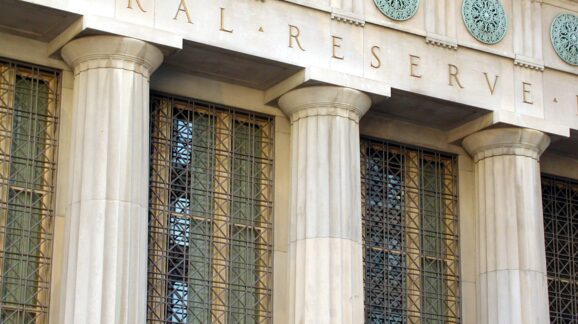No taming inflation without an independent Fed

Photo Credit: Getty
Federal Reserve chairman Jerome Powell recently testified before Congress for the semi-annual Monetary Policy Report. The Fed has been under fire from both sides of the monetary policy debate over high inflation and interest rate hikes. Some want the Fed to continue its tightening policy to stem inflation, while others want loose policy to avoid a potential recession.
The best way to solve this puzzle is give the Fed more independence. Two reforms that would accomplish this are a monetary policy rule and giving the Fed a single mandate to keep inflation low, instead of its current dual mandate.
When short-term political considerations dictate monetary policy, it should be no surprise when monetary policy goes into stimulus mode, even at the cost of inflation and a correction later on. Political interference in monetary decisions can also encourage inflation through monetization of the debt, as federal spending during the COVID-19 lockdowns revealed.
In 2020, federal government expenditures exceeded $6 trillion while the federal debt increased almost $5 trillion. The M2 money stock grew almost $4 trillion dollars in 2020, setting the stage for inflation. Politics encourages policymakers to sacrifice long-term economic health for short-term political gains.
While nominally independent from the federal government, the Fed faces political influence through several channels. In a review of the literature on Fed independence, economists Peter Boettke and Daniel Smith find evidence that the Fed’s monetary policy decisions are influenced by both the executive and legislative branches of the federal government. Politicians use this influence to manipulate Fed policymaking to benefit their reelection efforts, leading to monetary inflation.
A more independent Fed would have more incentive to keep inflation under control. A short-term outlook seeks to stimulate the economy in time for the next election, which causes inflation and macroeconomic distortions later on. If policymakers were focused on the long run, they would be more likely to adopt less inflationary policies. This would encourage sustainable long-term growth.
A monetary policy rule would increase Fed independence by reducing the influence of short-term political considerations on policymaking. The Fed currently has almost unlimited discretion in adjusting the money supply and interest rates. While this sounds like independence, in practice it allows instead for Congress and the president to pressure the Fed into almost any action they want. A rule requiring the Fed to adjust policy in a predetermined way in response to economic changes lets the Fed say no to election-minded politicians.
The Fed’s dual mandate to pursue both low inflation and low unemployment also harms its independence. Since these two missions often contradict each other, Fed officials must use discretion in choosing which to follow at a given time. This exposes the Fed to significant political pressure to use monetary policy to advance political goals. Replacing the dual mandate with a narrower mandate to focus solely on inflation control would reduce political influence and bolster the Fed’s independence. An independent Fed may not fix all of our central banking problems, but it would certainly be an improvement over politicized central banking and runaway inflation. It would bring some responsibility to monetary policy when that is sorely needed